Search
Remove Ads
Advertisement
Summary 
Loading AI-generated summary based on World History Encyclopedia articles ...
Search Results
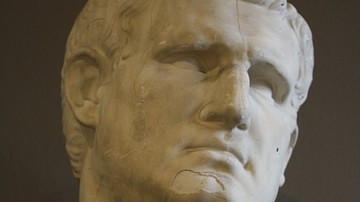
Definition
Marcus Agrippa
Marcus Vipsanius Agrippa (l. 64/62 – 12 BCE) was Augustus' (r. 27 BCE - 14 CE) most trusted and unshakably loyal general and his right-hand man in the administration of the city of Rome. Although his name is forever connected with the first...

Image
Marcus Agrippa
A cast of an original 1st century BCE marble bust of Roman general Marcus Agrippa (63-12 BCE). (Archaeological Museum of Pavia, Italy)

Definition
Battle of Actium
The Battle of Actium (2 September 31 BCE, fought in the Ionian Sea off Actium, Greece) was the decisive engagement of the civil war fought between Octavian Caesar (l. 63-14 CE, later known as Augustus, r. 27 BCE - 14 CE) and the forces of...
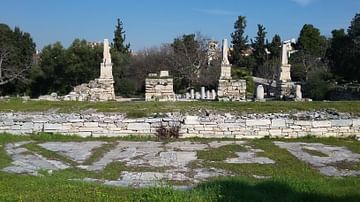
Image
Odeon of Agrippa, Athens
Rear (stage) view of the Odeon of Agrippa at the Roman Agora of Athens. It was built in 15 BCE by Marcus Vipsanius Agrippa (l. c. 64-12 BCE), Roman statesman, general, and son-in-law of Augustus Caesar. It was a two-story auditorium that...

Definition
Roman Naval Warfare
Military supremacy of the seas could be a crucial factor in the success of any land campaign, and the Romans well knew that a powerful naval fleet could supply troops and equipment to where they were most needed in as short a time as possible...
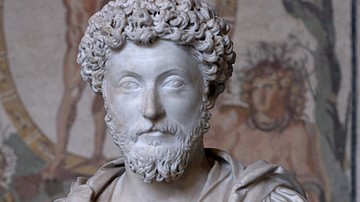
Article
Marcus Aurelius: Philosopher Emperor or Philosopher-King?
Co-authored by Steven Umbrello and Tina Forsee It is very common to hear in both academic circles, as well as more close-knit Stoic circles, Marcus Aurelius (121 – 180 CE) being referred to as the philosopher king. This is not an idea...

Article
The Battle of Actium: Birth of an Empire
The battle of Cynoscephalae in 197 BCE concluded the Second Macedonian War (200-197 BCE) and consolidated Rome's power in the Mediterranean, finally resulting in Greece becoming a province of Rome in 146 BCE. This engagement is sometimes...
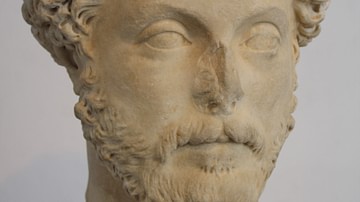
Definition
Marcus Aurelius
Marcus Aurelius (r. 161 to 180 CE) was a Roman emperor best known as the last of the Five Good Emperors of Rome (following Nerva, Trajan, Hadrian, and Antoninus Pius) and as the author of the philosophical work Meditations. Although it has...
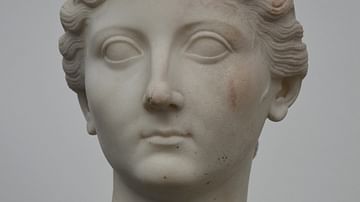
Definition
Livia Drusilla
Livia Drusilla (58 BCE - 29 CE) was the third wife of emperor Augustus of Rome, mother of emperor Tiberius, and grandmother of emperor Claudius. She was one of the great women in history who achieved prominence living in the shadow of a strong...

Definition
Marcus Junius Brutus
Marcus Junius Brutus (85-42 BCE) was a Roman politician and a leading figure in the assassination of Julius Caesar in 44 BCE. Although he was granted amnesty after the Ides of March, a new civil war soon broke out. Brutus committed suicide...